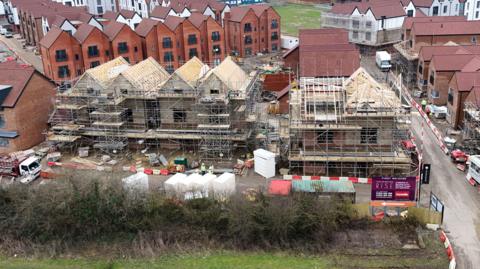The difficulty of hitting the house-building target has brought the impact of BNG into sharper focus.
BNG became a mandatory part of the planning system in England in February as part of the 2021 Environment Act.
It means sites have to be assessed and housing developers must commit to delivering a 10% net improvement in biodiversity that lasts over a 30-year period.
Last month, the Home Builders Federation said the BNG had placed a "disproportionate burden on small and medium-sized home builders".
"The home-building industry has embraced BNG and is committed to both increasing housing supply and protecting and enhancing our natural environment," Neil Jefferson, chief executive at the Home Builders Federation, said.
"However, if we are to increase supply alongside these new requirements it is vital to address emerging barriers to implementation, such as the insufficient resourcing of local authorities, shortage of ecologists, and inadequate national guidance."
But the Wildlife and Countryside Link, a coalition of conservation groups, urged the government not to "turn back the clock to the days of damaging development".
Richard Benwell, chief executive of Wildlife and Countryside Link, said: "Exempting small sites would mean almost three-quarters of developments face no requirement to compensate for nature loss - let alone enhance it.
"These changes could leave the Biodiversity Net Gain system dead in the water and, with it, the government's main guarantee of nature-positive planning."
The government is launching a consultation reviewing BNG and alongside this, is investing £100m in loans to help smaller house-building firms.
